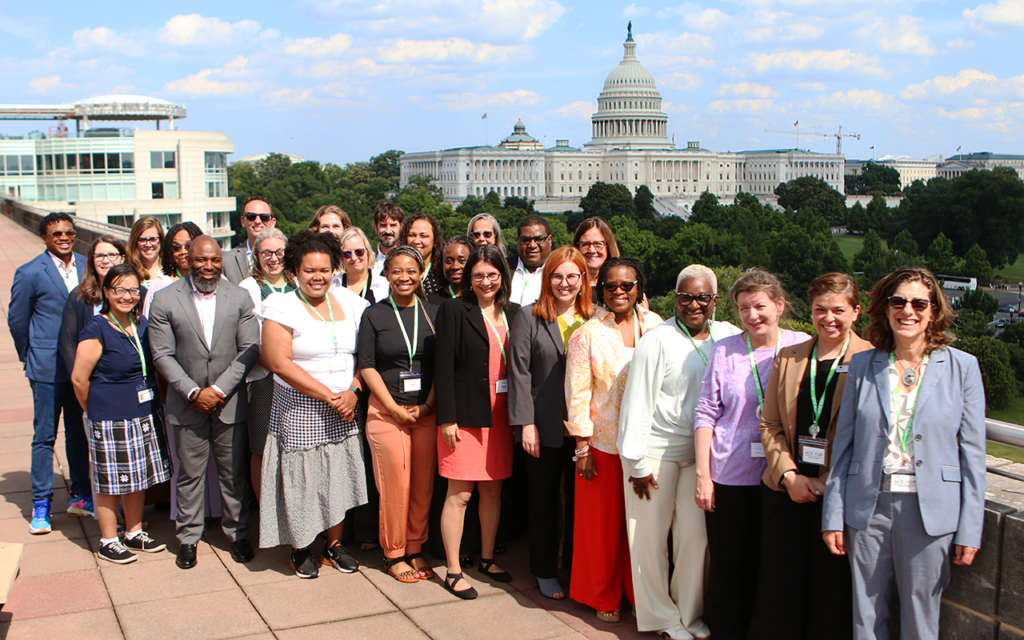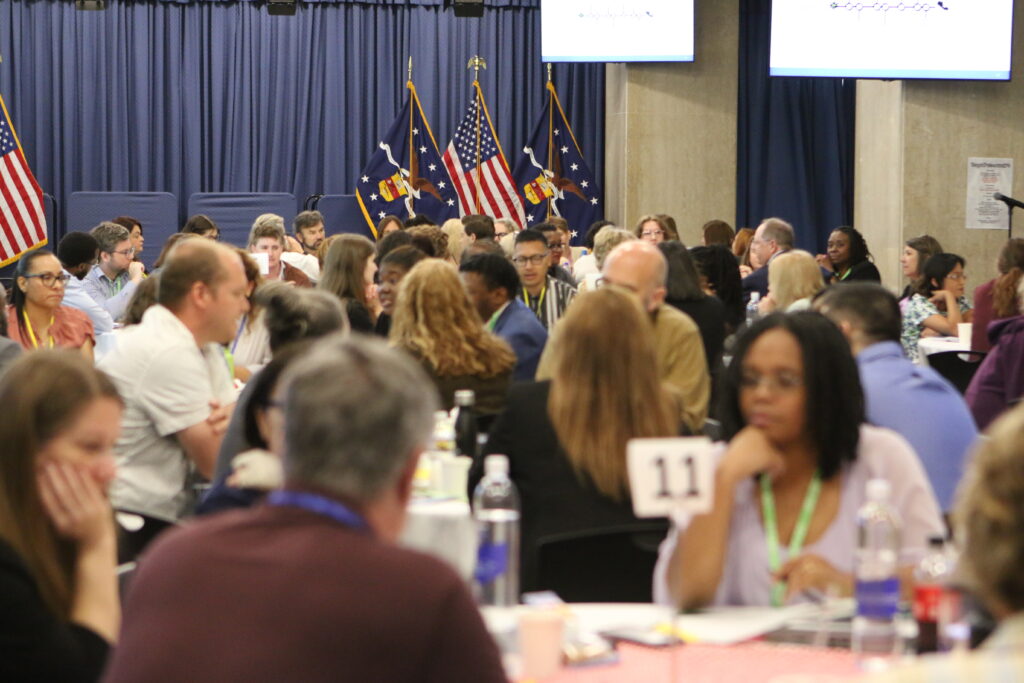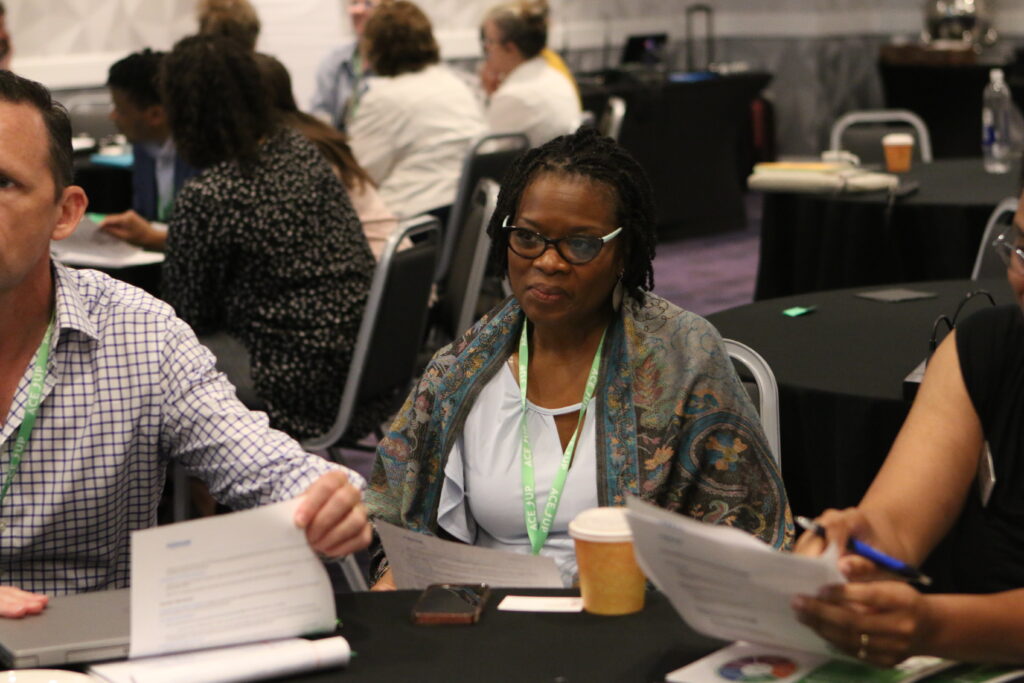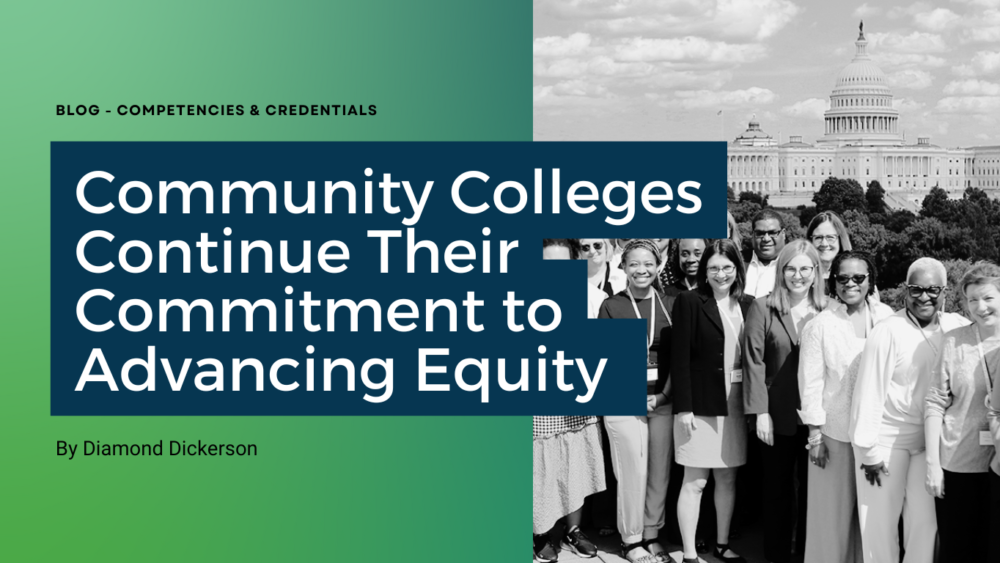Since the start of the Advancing Community Equity & Upward Mobility (ACE-UP) community of practice, DEI efforts across the workforce landscape have been limited by court rulings and new legislation, leading many employers to dial back—or completely eliminate—these initiatives. ACE-UP, with generous funding from Lumina Foundation, provides members with content, resources, and an opportunity to compare notes with peers from across the country on ways to operate in this highly charged environment. To this end, ACE-UP members from 15 institutions met in person in June, with a focus on the role community colleges play in advancing workforce opportunities and connecting with industry partners to secure good jobs and equitable workplaces.
The meeting took place in Washington D.C. and included joint sessions with the U. S. Department of Labor’s Strengthening Community College (SCC) grantees. ACE-UP and SCC share a mission to enhance their capacity to create pathways to upward economic mobility for learners. By partnering with industry, affiliated colleges aim to address the need for skilled workers, provide more equitable workplaces, and assist learners in securing good jobs in high-demand industries.

ACE-UP members photographed at the in-person meeting at the US DOL building.
In sessions designed to foster idea generation around elements of workforce development including career pathway systems to good jobs, sustainable systems change, and employer engagement, participating institutions considered what it means to see equity in action and how the strategic use of resources can shift systems toward more equitable practices. CSW’s Jenny Poole presented preliminary findings of soon-to-be-released research on equity messaging, supported by the Annie E. Casey Foundation, which involved discussions with community colleges and public funders about how to advance racial equity as a workforce priority, and gain buy-in and support for these efforts.
One of the key aspects of the convening was giving community colleges the opportunity to put into practice what they have learned during their membership in ACE-UP. They received research-based insights on implementing equity practices at the community college level, emphasizing the importance of institutional leadership and the role of data in identifying equity gaps, measuring progress, and understanding student engagement with services.

SCC and ACE-UP meeting members inside the joint conference at the US DOL building.
In a session designed to have members reflect on their shared experiences and the information presented throughout the convening, the Lightning Decision Jam asked what strategies, policies, or practices are moving them forward in each of the ACE-UP Elements of Success. They then considered challenges preventing forward progress, creating practical solutions to address them.
The Lightning Decision Jam session provided a valuable space for members to plan ways to operationalize equity initiatives at their institutions. It allowed them the needed time to delve more deeply into the root causes of their challenges and create actionable steps to address these issues. Members have expressed the need for dedicated time to focus on these critical aspects, and this session fulfilled that need.

ACE-UP members participating in the lightning decision jam activity.
ACE-UP Members also explored effective strategies for communicating their equity initiatives within their institutions and communities. Amid numerous changes occurring nationally and within their states, they began developing equity plans to implement over the next six months to a year.
An important aspect of the community college-industry relationship is removing barriers that prevent underserved populations from achieving economic advancement through credential attainment. The ACE-UP Community of Practice continues to create opportunities for colleges and their industry partners to advance equity initiatives for the learners who need it most. CSW will be publishing an action guide documenting these initiatives. To be the first to hear about the ACE-UP Action Guide, sign up for our newsletter for updates and resources.
Meet the Author
Diamond is a Senior Policy Associate with CSW’s Competencies and Credentials Team. She supports efforts to expand the use of competencies and credentials within learning and talent management systems to remove educational barriers and increase career opportunities for low-wage workers with a particular emphasis on people of color.




Comments are closed.